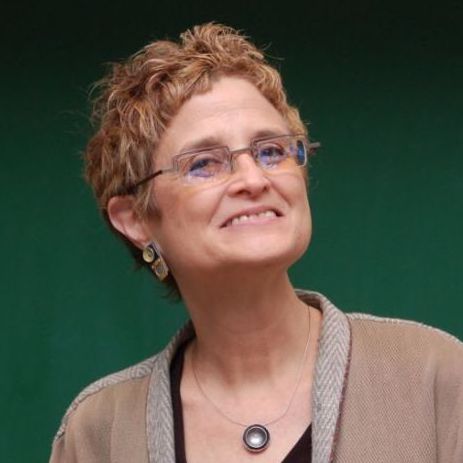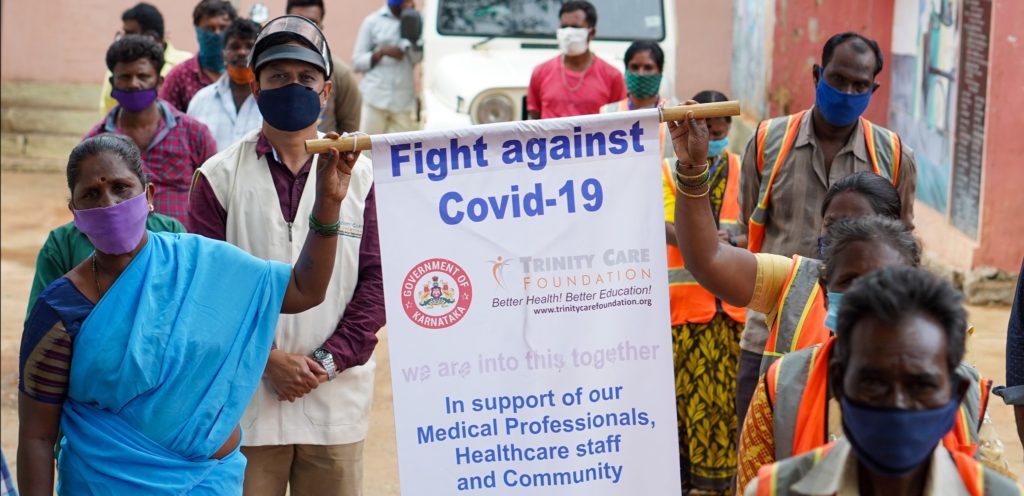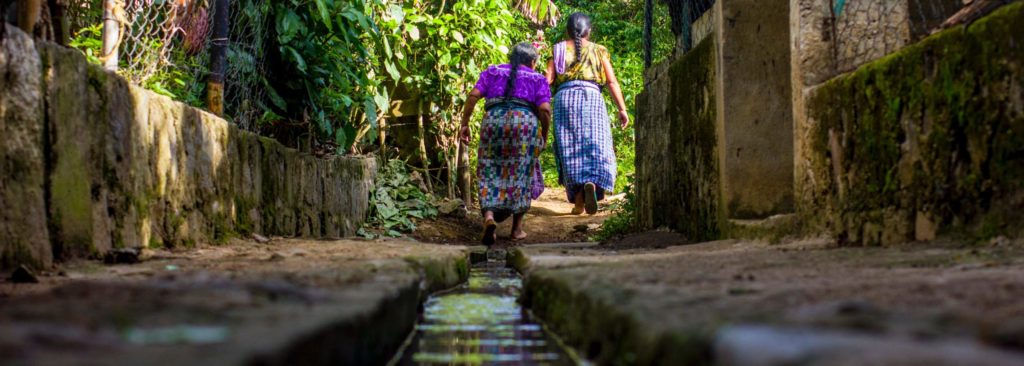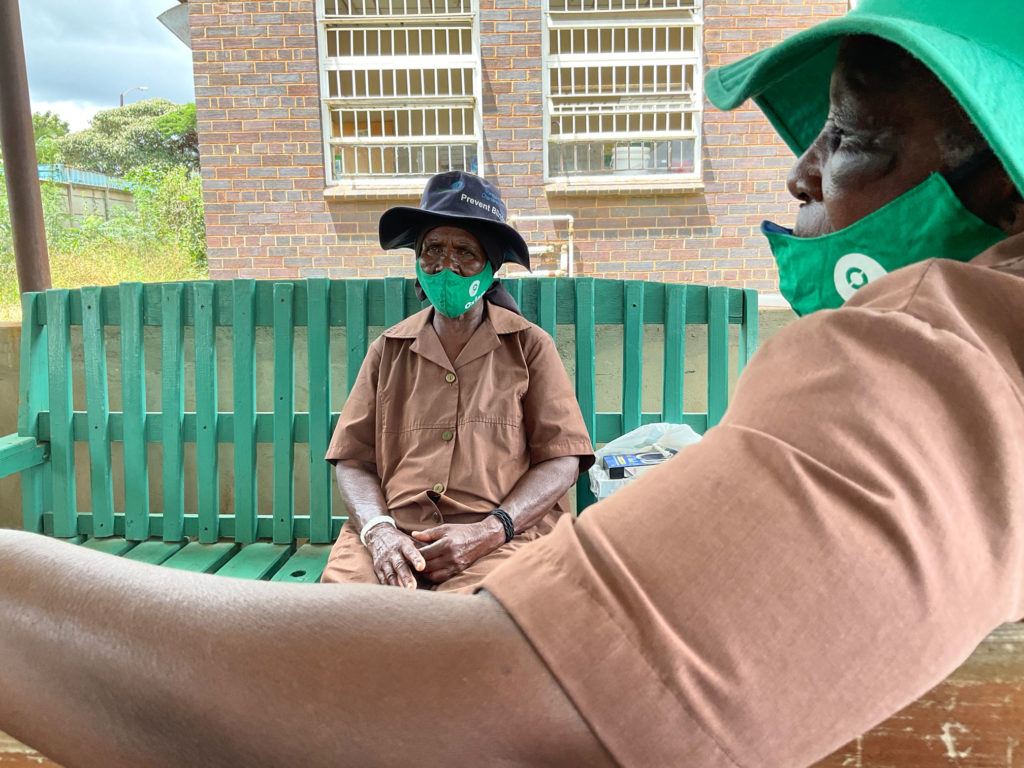Published: 06/10/2021
Dear Global Health Colleagues,
The pandemic has had a mixed impact on the field of mental health. On one hand, COVID-19 has had undeniably detrimental psychiatric effects through sheer isolation, anxiety, and trauma. On the other hand, for the first time ever, mental health may be getting the mainstream recognition it deserves.
For years mental health has lurked in the shadows of medicine, going unrecognized and untreated. I remember a time when therapy was a forbidden topic of conversation, and major psychiatric ailments, like depression, OCD, or Tourettes syndrome were considered hindrances or quirks. Today we know better, recognizing mental health as a necessity to a productive and fulfilling life, and if there was any remaining doubt that it deserved our attention and scrutiny, COVID-19 showed us better.
Long before the pandemic struck, however, my Stanford colleagues and Global Health Faculty Fellows have been prioritizing this essential field, and for this year’s Mental Health Awareness Month, I am happy to have an opportunity to celebrate them.
Dr. Daryn Reicherter has been hard at work in partnership with UNITAD, developing and implementing a sensitive, trauma–informed approach to engagement with survivors of human rights atrocities. At the US-Mexico border, Doctors Ryan Matlow, Paul Wise, and Ewen Wang have been sounding the alarm on the inhumane treatment of children and the long-term psychiatric repercussions inflicted on these migrating youth. Further south in Guatemala, Dr. Christina Khan is using her expertise to train physicians to recognize and treat common psychiatric ailments in low resource settings, the subject of this month’s 5-Questions interview below. A new concerning trend in mental health is also on the rise — eco-anxiety and climate trauma — but it gives me solace to know that both our new Human and Planetary Health Postdoctoral Fellows, Doctors Elaine Flores-Ramos and Britt Wray, are taking this issue head on. The list goes on, and I am grateful to be surrounded by such committed and skilled colleagues.
The global community may face many mental health challenges in the future, but I am happy to see that we are on track to bringing this important issue the attention and transparency it requires. In this month’s newsletter, we have brought together a collection of stories and articles on global mental health — I invite you to read on and keep this issue at the forefront of our field.
Sincerely,
Michele Barry

Drs. Ben and A. Jess Shenson Professor of Medicine and Tropical Diseases
Director of the Center for Innovation in Global Health
Senior Associate Dean for Global Health, Stanford University


Stanford and LSHTM announce the inaugural postdoctoral Fellows in Planetary Health to drive solutions for mental health and climate change
Global health education often occurs in a common format: institutions in high-income countries send clinicians to institutions in low-income countries. In theory, the low-income partner receives the benefit of learning from visiting expertise and an extra pair of hands, while the clinician gains experience with tropical diseases and bedside diagnosis by working in under-resourced settings. Things rarely work out this way. In this feature article, Dr. Michele Barry and her colleagues at Makerere University and Yale break down the inequities of global health education and points to the pandemic as an opportunity to reassess and restructure. Read our feature article here.

India & South Asia COVID-19 Resources
We have been working hard to compile a comprehensive list of online resources made by Stanford faculty to aid and inform families and healthcare professionals treating COVID-19 victims across India and in neighboring countries. We hope these resources can offer some help during these tragic times. Access the resources here.

Global Mental Health
- When Undoing Is Not Enough — Repairing Harms Inflicted on Immigrant Children (5/5/21): A commentary by Global Health Faculty Fellows Ewen Wang, M.D., and Ryan Matlow, PhD, on health and mental impacts on children due to the Biden administrations shortcoming at the border.
- These Latinos got Covid, and the mental health toll lingers. There’s help, experts say (5/18/21): Underserved populations have been much harder hit by COVID-19, and the mental health impacts of this inequitable toll will have ripples for years to come.
- In the words of Jennifer Uchendu, climate activist and eco-anxiety researcher (4/21/21): From GenDread, our new planetary health fellow’s weekly newsletter, this interview covers eco-anxiety in the youth of Nigeria, and how that existential dread has particular relevance in LMICs.
- COVID-19 has taken a toll on the mental health of LGBTQ youth (5/19/21): Recent research showed that suicide rates in the US dropped during the pandemic. Follow up research showed this may have been white-centric — marginalized communities have in fact had increased suicide rates.
- US: ‘Remain in Mexico’ Harms Children, Families (1/6/21): A summary write-up on the The 103-page report, “‘Like I’m Drowning’: Children and Families Sent to Harm by the US ‘Remain in Mexico’ Program,” with commentary from author and Global Health Faculty Fellow Dr. Ryan Matlow from Stanford’s Human Rights in Trauma Mental Health Program.
Other Focus Areas
COVID-19 in India
- Opinion: India’s covid-19 crisis is a dire warning for all countries (4/30/21): A critical Washington Post op-ed from Madhukar Pai and Stanford Global Health Core Leadership member Manu Prakash.
- COVID in India: Drawing Lessons From its Biggest Public Health Crisis (5/1721): With the crisis in India now spilling over into nearby nations, we must quickly learn from the this public health disaster as we continue to fight it.
Vaccine Equity
- U.S. will donate substantial portion of vaccines through COVAX -U.S. officials (5/19/20): Long overdue, a plan for international COVID-19 vaccination donations emerges from the Biden administration.
- Why Covax, the fund to vaccinate the world, is struggling (5/20/21): This behind-the-curtain glimpse into COVAX shows us why they have only distributed 3.4% of their 2 million vaccine goal so far this year.
- India crisis puts COVAX 150 million doses behind schedule (5/10/21): With India producing a large portion of the world’s COVID-19 vaccines and the Indian government now prioritizing domestic vaccination, global vaccination efforts are being dealt a major blow.


5 Questions with Dr. Christina Khan on building mental health services infrastructure in rural Guatemala
Global Health Faculty Fellow Dr. Christina Khan is using her global health work to demonstrate that in under-resourced settings, healthcare professionals have an appetite for providing mental health services, even if they don’t have the infrastructure. Read the article here.

Every month we invite an esteemed colleague from around the world to share global health learnings, experiences, and insights from their work.
Intergenerational connectedness in the face of a pandemic: lessons from Friendship Bench in Zimbabwe

Dixon Chibanda,
Founder & CEO of Friendship Bench
In 2005, a patient of mine, Erica, took her own life. In the wake of this tragic loss, I sought out a community-based intervention to serve the largely unmet mental health needs in Zimbabwe. The result is Friendship Bench, a brief psychological intervention delivered by trained community grandmothers in Zimbabwe.
A study published in JAMA shows effectiveness of using grandmothers to treat depression and avoid suicidal behaviour. With over 50 peer reviewed publications, Friendship Bench has become the most sought after lay health worker delivered mental health program in Zimbabwe and beyond.

In early March of 2020 we reluctantly started to transition Friendship Bench to an online platform to adhere to social distancing. While the use of technology in the mental health space has enormous and promising potential to increase access of a much needed service, the transition posed a threat for The Friendship Bench. For the last 10 years, Friendship Bench program has relied on the amazing ability of face to face talk therapy provided by over 700 community grandmothers from wooden park benches. Shifting away from the proven impact of in-person interaction and to a digital format tested our very survival.

Realizing the challenges our trained grandmothers faced with delivering online cognitive behavioural based therapy through their smart phones, we introduced younger more technically savvy university students to work with the grandmothers.
An intergenerational relationship has developed between our grandmothers and the younger therapists in a synergistic way — young people provide the technical knowledge that enables the grandmothers to efficiently use their devices during sessions while the grandmothers provide grounding and a sense of belonging to the young university students within this new intergenerational connectedness. Preliminary results of the new approach show that this is a feasible, acceptable alternative way of delivering Friendship Bench.

COVID-19 Q&A for Healthcare Professionals and Families in India
Hosted by the Stanford Department of Medicine.
Click here to register.
Tuesday, May 25 | 8 to 9 p.m. (US, PT)
Wednesday, May 26 | 8:30 to 9:30 a.m. (India)
The Department of Medicine invites you to join this second webinar with expert panelists from Stanford University to share information with anyone caring for COVID-19 patients in India and address questions about management of COVID-19. Topics for this live webinar will include COVID-19 in children and in pregnant/lactating women, blood thinners in COVID-19, and the effects on the heart and lungs and other long-term outcomes of COVID-19. This webinar is targeted to health care workers and anyone caring for COVID-19 patients from home, but everyone is welcome to join.
Webinar: Reforming the WHO – How We Can Strengthen the World’s Leading Public Health Agency
Hosted by the Consortium of Universities for Global Health.
May 25 | 12:00-1:00pm PDT
Click here for more information.
The WHO is the leading global public health agency. Its role is essential for our collective and individual health. In the face of the COVID-19 pandemic, we have an opportunity to strengthen it, to make it a more effective, transparent and better funded organization. Learn about the reforms that countries can support to achieve these goals from these former leaders within the organization.

Job Opportunity: Analyst, Global Health Equity at Emerson Collective
The Philanthropy team at Emerson Collective provides support to nonprofits through grantmaking as well as various programs and is currently seeking an Analyst to support the Global Health Equity Portfolio. In this role, you will help identify potential nonprofit partners, support existing grantee partners, and assist with cultivating and identifying new opportunities to strengthen collaboration. The Analyst will work in global health equity, which includes efforts to increase equity in access to and outcomes of care. This work includes partnering with nonprofits who are working to deliver high-quality care to vulnerable populations, supporting community health workers and other frontline providers; and addressing social and economic contributors to disease and ill health. This role will report to the Director, Global Health Equity on the Philanthropy team.
Job Opportunity: Infection Prevention and Control (IPC) managers at Doctors Without Borders/Médecins Sans Frontières
Doctors Without Borders/Médecins Sans Frontières is urgently recruiting Infection Prevention and Control (IPC) managers for our projects in 70+ countries. Infection Prevention and Control (IPC) managers manage activities, lead the development and maintenance of an infection-control program in an MSF field project. The goals of the role include striving for good quality of care and the safety of patients, caretakers and staff. In accordance with MSF protocols and standards, IPC managers will participate in the definition of the project’s IPC objectives.
Call for Applications: The Global Forum on Humanitarian Health Research (GFH2R)
Deadline: May 28, 2021
Click here for more info.
GFH2R seeks to bring researchers and humanitarian organizations (including NGOs, local policymakers, and international agencies) together to share experiences and promote collaboration around health research in humanitarian settings. The meeting will be built around case study presentations by researchers from regions of the world affected by humanitarian crises. The forum prioritizes the participation of researchers from low- and middle-income countries (LMICs), encourages networking and mentoring, and creates a venue for open and inclusive discussions. The theme of the pilot meeting of GFH2R is “Research in the Context of Concurrent Crises.” The meeting will be built around case studies describing health research experiences in a setting beset with multiple, concurrent humanitarian crises. Case studies may describe research in any type of humanitarian crises, including the COVID-19 pandemic, as long as more than one crisis affects the study population.